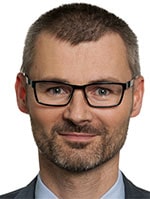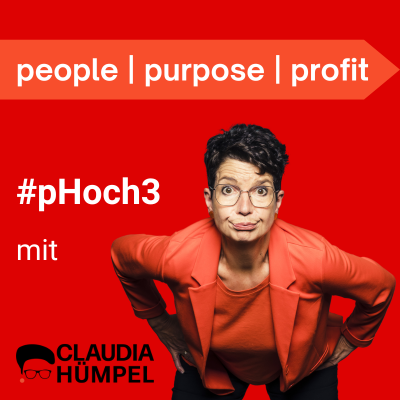Podcast gems: listening pleasure at its best
Podcasts have undergone a remarkable development in recent years and have become an indispensable medium for knowledge, entertainment and inspiration for many people. They offer a great opportunity to dive deep into topics, listen to stories and hear experts from a wide range of fields – anytime and anywhere. The variety of podcasts available is impressive and makes it possible to find just the right one for every mood and interest. In this article, I will introduce you to nine podcast gems that offer the finest listening pleasure with exciting content and fascinating stories.
Let’s get started with the podcasters’ insights!
Leadershipkino Podcast – Führungsgeschichten
Inga Wiele runs Leadershipkino Podcast and tells leadership stories.
- Website: https://www.gezeitenraum.com/angebot/leadershipkino/leadershipkino-podcast/
- Spotify: https://open.spotify.com/show/24XqODKoJbzwv9OOtr7vg8
- Radio.de: https://www.radio.de/podcast/leadershipkino-podcast
Inga, what is your podcast about and what is the central topic?
Inga Wiele: My podcast is all about how modern leadership and fruitful collaboration REALLY work (beyond leadership theory and wishful thinking). Films and series provide the inspiration for this. Based on the analogies we can find there, my guests and I discuss what can be derived from them for everyday situations at work. My guests are experienced managers, coaches and leadership experts, but also team members without leadership responsibility, who explain their experiences and ideas of cooperation and leadership using examples from films or series.
Films and series are so well suited because they make leadership and cooperation more visible than role plays. Sometimes exaggerated, sometimes too optimistic, sometimes too pessimistic. But always in such a way that a discussion space is created that can be repeated and recalled again and again.
Who do you want to address with it?
Inga Wiele: Anyone who wants to actively engage with the topics of leadership and collaboration. Anyone who is open to unconventional learning formats with real resonance.
Why do you do the podcast?
Inga Wiele: Because I am passionate about watching films and series myself and often think that what is shown there is incredibly well observed and portrayed. By talking to my dialogue partners, I broaden my own horizons and create new perspectives for my customers and followers.
What is the frequency of your podcast and approximately how long do individual episodes last?
Inga Wiele: I publish as much as possible on a weekly basis. An episode lasts between 18 and 25 minutes.
And what’s your favourite podcast?
Inga Wiele: I really like Seelenfutter by Susanne Garsoffky nd Friedemann Magaard.
Projectum
With Projectum, Torben Blankertz offers a mix of interviews, specialist topics, tech news and general organisational topics.
- Website: https://podcast.blankertz-pm.de/
- Spotify: https://open.spotify.com/show/4uSjvmXenqlVsmbsnGe3Qn
- Podcast.de: https://www.podcast.de/podcast/679911/projektmanagement-proiectum
Torben, what is your podcast about and what is the central topic?
Torben Blankertz: In my podcast, I cover various topics relating to project management, techniques and tools. In addition to my solo recordings, in which I publish my own special programmes, I also have guests on the podcast at regular intervals who always bring interesting topics with them. So it never gets boring.
Who do you want to address with it?
Torben Blankertz: The podcast is aimed at anyone who deals with the topic of project management. Whether company management, project managers or project leaders, sales or employees – everyone will find interesting topics for their daily work in the project business here.
Why do you do the podcast?
Torben Blankertz: I started the podcast to publish the latest tech news about Microsoft Project and my lecturer topics from the BCW (BildungsCentrum der Wirtschaft in Essen). Over the years, the podcast has evolved. The topics and subject areas became more and more varied and so did the listeners. A community can only exist if information is shared. I always enjoy finding new topics and then passing them on to my community.
What is the frequency of your podcast and approximately how long do individual episodes last?
Torben Blankertz: I publish one episode every month. Normally, an episode shouldn’t last longer than 40 minutes. Depending on the interviewee, it can sometimes be a little longer, but the goal remains 40 minutes.
Do guests have their say?
Torben Blankertz: Yes, I used to try to alternate between publishing a solo episode and then a guest episode. In the meantime, that doesn’t quite work anymore, there are more and more guest episodes.
And what’s your favourite podcast?
Torben Blankertz: I listen to a lot of podcasts, whether I’m doing sport, in the car or at work. My top three at the moment are Haschimitenfürst – Der Bobcast by the drei Fragezeichen, {ungescriptet} – Gespräche, die dich weiterbringen by Ben Berndt and of course, as a football fan Stammplatz – Fußball News täglich is a must.
Corporate Therapy
Mary-Jane Bolten, Human Nagafi and Patrick Breitenbach run Corporate Therapy together.
- Website: https://corporate-therapy.com/
- Spotify: https://open.spotify.com/show/4YJAFJozpGByyV6F5IX7o6
- Apple: https://podcasts.apple.com/de/podcast/corporate-therapy/id1499611321
Mary-Jane, what is your podcast about and what is the central theme?
Mary-Jane Bolten: We are a critical management podcast. This means that we deal with everything to do with work. Sometimes we look inside organisations and sometimes at their contexts in business and society.
Who would you like to address with it?
Human Nagafi: In principle, everyone who shapes organisations and spends time in them.
Why do you do the podcast?
Patrick Breitenbach: Our aim is for people to understand what is actually going on. Through our discussion, we also try to explain to ourselves which ideologies drive us, which things we perhaps take for granted and why. As the name suggests, you can think of it as ‘psychoanalysis’: Understanding what happens and why it happens sometimes helps. Who ends up lying on our metaphorical couch varies: sometimes it’s the ‘corporate’, sometimes it’s us as members of the organisation and sometimes it’s us as consultants.
What is the frequency of your podcast and approximately how long do individual episodes last?
Mary-Jane Bolten: We usually publish every fortnight on Tuesdays and an episode lasts 90 minutes on average.
Do you allow guests to have their say?
Human Nagafi: Yes, lots of them and some really great ones. We alternate between episodes that we record with our podcast team (Mary, Patrick and me) and episodes with guests, e.g. Adrian Daub, Judith Muster, Wolfgang M. Schmitt, …
And what are your favourite podcasts?
Mary-Jane Bolten: I love history, which is why I’m currently listening to Gone Medieval by HistoryHit and the BlomCast by Philipp Blom.
Patrick Breitenbach: My current favourite is Alman Arabica.
Human Nagafi: Clearly GameStar Talk.
Produktmanagement Im.puls
Bernadette von Wittern and Anselm Zebner run Product Management Im.puls and focus on modern product management and product leadership.
- Website: https://productlounge.net/produktmanagement-podcast/
- Spotify: https://open.spotify.com/show/4ezan9vaPDFbBy8qjyVDHD
- Apple: https://podcasts.apple.com/de/podcast/produktmanagement-im-puls/id1734391355
Bernadette von Wittern: Our podcast Product Management Im.puls is all about modern product management in the industry. We look at strategy, product leadership and the transformation towards more market-orientation. Anselm Zebner and I do the podcast together. We complement each other very well because we both have a lot to do with product managers and executives from medium-sized industrial companies and at the same time look at the topic from different perspectives. Anselm was in sales for a long time before he developed his own product, and I worked as a marketing and product manager in medical technology for almost 20 years.
Who would you like to address with it?
Anselm Zebner: Product management plays an important role in the company because it is crucial to its success. Product managers are responsible for the design and marketing of products. They implement the corporate strategy and create the next sales driver.
Our podcast is therefore aimed at ambitious product managers and executives who want to achieve more impact for themselves, the company, customers and users with their work and their products.
Why do you do the podcast?
Bernadette von Wittern: I really like the podcast format myself to get input, inspiration or impulses on a topic. Listening to an expert helps you to reflect on your own thoughts or simply look at things from a different perspective. It’s a different way of absorbing and processing information than reading a book, for example.
I am now a product management trainer and want to support and accompany my customers and participants in their personal and professional development in the best possible way. Podcasting as a format offers me the wonderful opportunity to share my thoughts, observations and current experiences around product management with my target group so that they can pick out exactly what helps them at the moment.
Anselm Zebner: Bernadette and I share the mission of launching better products with real added value and benefits for people and the environment. We do this by supporting and empowering product managers to fulfil their tasks. The podcast is an effective way of doing this.
I also really enjoy exchanging ideas with Bernadette in the way we do in the podcast. It makes me reflect on my own experiences and insights and keep on dealing with current topics. That’s really fun.
What is the frequency of your podcast and approximately how long do individual episodes last?
Bernadette von Wittern: The podcast is currently published every second Tuesday. Each episode lasts between 25 and 35 minutes.
Do you allow guests to have their say?
Bernadette von Wittern: Our podcast is still quite new and so far we haven’t had any guests. However, this is definitely planned. Then we would like to invite people from product management practice to share their thoughts, experiences and perspectives with us or experts from subject areas to the right and left of product management, i.e. who have useful knowledge or skills for product managers.
And what are your favourite podcasts?
Anselm Zebner: I like listening to Unicorn Bakery by Fabian Tausch, 20VC and The Tim Ferris Show. I’m also interested in a lot of things to do with product management, market research, sales etc. and listen to this and that.
Bernadette von Wittern: I always enjoy listening to Fast & Curious by Verena Pausder and Lea-Sophie Cramer or Eltern ohne Filter. However, I prefer to listen to episodes on topics that are currently on my mind or where I want to learn something new. I like to be well entertained, even if it’s authentically funny.
Carls Zukunft der Woche
- Website: https://www.carls-zukunft.de/tag/podcast-carls-zukunft-der-woche/
- Spotify: https://open.spotify.com/show/1BTNv9flfNF35SIjLdpNRD
- Apple: https://podcasts.apple.com/de/podcast/carls-zukunft-der-woche/id1579736114
Michael, what is your podcast about and what is the central topic?
Michael Carl: My podcast “Carls Zukunft der Woche” is all about the future and how it will affect our lives. I shed light on topics such as technology, innovation, sustainability and social change. The aim is to give listeners exciting insights into the developments that will shape our future.
Who do you want to address with this?
Michael Carl: I want to appeal to people who are curious about the future and interested in the latest trends and developments. This includes not only technology and science enthusiasts, but also anyone who wants to know how our everyday lives could change in the coming years.
Why do you do the podcast?
Michael Carl: I love good conversations. I do the podcast because I have a passion for future-orientated topics and want to share this enthusiasm with others. It is important to me to convey complex topics in an understandable and entertaining way in order to inspire people and make them think.
What is the frequency of your podcast and approximately how long do individual episodes last?
Michael Carl: My podcast is published weekly, always on Thursdays. The individual episodes usually last between 30 and 45 minutes. This leaves enough time to delve deep into the topics without overwhelming the listener.
Do guests have their say?
Michael Carl: Yes, in every episode. The economist Marcel Fratzscher and David Schraven, founder of Correctiv, have already been there. As have hacker Nella Allami and Roda Verheyen, who fought for the famous climate judgement before the Federal Constitutional Court. The podcast medium is ideal for these discussions. It brings diversity and depth to the discussions and enriches them with different points of view.
And what is your favourite podcast?
Michael Carl: I love Hidden Brain, an American podcast with amazing topics from the field of social psychology. I can highly recommend it.
pHoch3
In pHoch3, Claudia Hümpel thematises a humane and future-oriented working world.
- Website: https://claudiahuempel.com/podcast-phoch3/
- Spotify: https://open.spotify.com/show/6Rw4n0Laq2jJ1yO4LhZyvI
- Apple: https://podcasts.apple.com/us/podcast/people-purpose-profit-kurz-phoch3-damit-dein-unternehmen/id1674988526
Claudia, what is your podcast about and what is the central topic?
Claudia Hümpel: The podcast people | purpose | profit – or pHoch3 for short – is all about a humane and future-orientated working world and how we can get there.
My guests are people who make the (working) world a little better every day with their work, have exciting stories to tell and provide insights into their daily work. The audience receives inspiration, ideas and directly applicable tips on how their company can become a sought-after employer. A company that good people from IT and engineering enjoy working for. You will benefit from the best practices of the interview guests and my many years of experience as an IT specialist, managing director and HR and management consultant.
Who do you want to address with this?
Claudia Hümpel: Owners, managing directors & executives of companies and anyone who wants to contribute to making the world of work more humane and sustainable.
Why do you do the podcast?
Claudia Hümpel: I’m super curious and I’ve always been interested in the stories, lives and motives of people in the world of work. With the podcast, I can pursue my curiosity and learn a lot of interesting things with every conversation. I also want to use the podcast to help ensure that small IT and tech companies in particular don’t lose out in the competition for sought-after IT and engineering specialists, but instead become visible as attractive employers.
What is the frequency of your podcast and approximately how long do individual episodes last?
Claudia Hümpel: The podcast is published every Friday. The solo episodes are between 10 and a maximum of 25 minutes long. The interviews are 35-50 minutes long.
Obviously you let guests have their say, don’t you?
Claudia Hümpel: Absolutely. They are an important part of my podcast.
And what is your favourite podcast?
Claudia Hümpel: It’s difficult for me to decide because I really enjoy listening to podcasts on the side. Some time ago, I discovered Interviewhelden by Markus Tirok. As a podcaster, I learn an incredible amount there and I just love listening to Markus because of his pleasant voice. I also like the podcast Goodcast, which focuses on people who make the world a better place every day.
programmier.bar
Dennis Becker, Fabian Fink, Sebastian Schilbe and Jan Gregor Emge-Triebel run programmier.bar together and discuss tech topics.
- Website: https://www.programmier.bar/
- Spotify: https://open.spotify.com/show/0ik0sXv9paTQCeThcOLCCJ
- Apple: https://podcasts.apple.com/de/podcast/programmier-bar-der-podcast-f%C3%BCr-app-und-webentwicklung/id1371409964
Jan, what is your podcast about and what is the central topic?
Jan Gregor Emge-Triebel: As the name suggests, we are all about programming. We have different formats:
- With our news and AI news episodes, you can immerse yourself in developments from the web world such as industry news or artificial intelligence.
- Our deep-dive episodes provide in-depth insights into a specific topic – such as a language, a framework or similar.
- We are a little proud of our CTO specials, in which we have CTOs, CEOs and other executives from the German-speaking software industry in the podcast studio to talk about their biographies, activities and working methods.
Who would you like to address with it?
Fabian Fink: We primarily address developers, but also other people who work in the field of software development – whether in product design, management or testing. Our aim is to make programmier.bar accessible without neglecting the content. We have often heard that even people without a traditional technical background enjoy listening – and that one or two people have even found their way into software development with us.
Why do you do the podcast?
Sebastian Schilbe: First and foremost, we want to help bring the German-speaking developer community closer together. In addition to the podcast, we organise regular meetups near Frankfurt am Main and this year, for the first time, we are even holding our own conference.
Dennis Becker: And, of course, we simply enjoy it! We enjoy talking about our own work in software and game development. We also enjoy listening to and learning from our experienced guests. The podcast is ideal for this, because not only do we benefit from the constant dialogue with others, but so does our entire community.
What is the frequency of your podcast and approximately how long do individual episodes last?
Fabian Fink: The programmier.bar publishes an (AI) news episode every Wednesday. We try to keep the news between 30 and 45 minutes – to be honest, we don’t always succeed. Our Deep Dive episodes are published fortnightly and the CTO Specials a little less frequently. Both formats have more depth and last around 60 to 75 minutes.
Do you allow guests to have their say?
Jan Gregor Emge-Triebel: Naturally! Our CTO specials thrive on exciting guests who inspire us. But we also look for suitable dialogue partners for each topic of the Deep Dive episodes. This is not necessarily easy, but it enriches each episode with expertise. Our guests also seem to enjoy it, because after five years and over 300 episodes, one or two of them have already been with us several times.
And what are your favourite podcasts?
Sebastian Schilbe: Geschichten aus der Geschichte. Super interesting stories simple and often eye opening and much more exciting than history lessons at school.
Dennis Becker: Fest & Flauschig. I don’t know, it just entertains me.
Jan Gregor Emge-Triebel: Accidental Tech Podcast. I’ve been listening to some of the hosts there on a weekly basis for almost 15 years. Their work was my introduction to the podcast world – back then on an iPod – and I’ve stuck with it ever since.
MAGIC BRAIN KICKS
Dr Maria Hoffacker runs MAGIC BRAIN KICKS and provides food for thought for the brain and lots of knowledge about the brain.
- Website: https://www.drmariahoffacker.com/podcast-de/
- Spotify: https://open.spotify.com/show/5KueRKp8g0qaU1iH1BDasH
- Apple: https://podcasts.apple.com/de/podcast/magic-brain-kicks-by-dr-maria-hoffacker/id1487341424
Maria, what is your podcast about and what is the central topic?
Maria Hoffacker: Happiness and success are no coincidence, but brain power properly utilised. In my podcast, I show people how they can properly utilise the infinite potential of their biological supercomputer. Inspiration and practical applications from modern brain research for personal success await. We talk about how people can properly feed their head, heart and gut so that they become inner power teams with which people can achieve anything.
At a time when everything is being digitalised and artificial intelligence seems to be doing everything for us, listeners learn how superior their own human computer actually is if they know how to control it properly. The podcast episodes focus on specific tools, insights from experts and many stories from my own life as a marine biologist, environmental manager, science editor and lecturer.
Who do you want to address with this?
Maria Hoffacker: The target group of my podcast is primarily managers, self-employed people and entrepreneurs who are interested in new innovative tools for self-management and leadership. They are people who want to realise their potential and develop themselves further. People who want to learn about new innovative business ideas also listen to the podcast.
Why do you do the podcast?
Maria Hoffacker: It is important to me to share my own knowledge as a biologist, theologian and educator. It is a mixture of science and ancient wisdom. I also pass on my wealth of experience from over twenty years in business, communication and personal development.
What is the frequency of your podcast and approximately how long do individual episodes last?
Maria Hoffacker: So far, the podcast has 140 exciting episodes. After the podcast started with weekly episodes, it is currently published irregularly due to other high workloads.
Do guests have their say?
Maria Hoffacker: I invite guests from many innovative industries. Many exciting personalities will have their say, new entrepreneurial concepts will be presented and exciting neurohacks will be shared.
And what is your favourite podcast?
Dr. Maria Hoffacker: My current favourite podcast is the OMR podcast by my former colleague Philipp Westermeyer.
Serious Games Podcast
Julian Kea runs the German and English-language Serious Games Podcast.
- Spotify: https://open.spotify.com/show/1gzuloGPCIMUVPzV5x6cPY
- Apple: https://podcasts.apple.com/us/podcast/the-serious-games-podcast/id1493071289
Julian, what is your podcast about and what is the central topic?
Julian Kea: My podcast is about interactive methods and interventions for meetings, workshops, training sessions and conferences. From goal setting and preparation, to the structure and process, to debriefing and tips, we look at the aspects that need to be adapted in order for a serious game to be effective.
Do guests have their say?
Julian Kea: Always. My guests like to use or develop serious games. Depending on the guest, an episode is then published in German or English.
Who do you want to address with this?
Julian Kea: Teachers, trainers, facilitators, learning designers, coaches and managers. Anyone who designs or facilitates workshops, meetings and other learning formats. Anyone who wants to address and activate an audience and ensure that participants interact authentically and understand knowledge.
Why do you do the podcast?
Julian Kea: I was dissatisfied with the available serious games descriptions and instructions, as they do not describe the many small moments and possibilities of the facilitator’s influence well or at all. A conversation can do this much better.
In fact, I like to compare it to a conversation with my grandmother and a cookery book: the cookery book certainly tells you what you have to do to bake a good cake. But during the conversation you understand the countless reasons why this is the case, realise that kneading is not the same as kneading and can of course ask questions.
What is the frequency of your podcast and approximately how long do individual episodes last?
Julian Kea: Initially every eight weeks, since 2024 every four weeks. An episode lasts as long as it takes – that’s 45-60 minutes across all episodes.
And what is your favourite podcast?
Julian Kea: I don’t listen to any podcasts regularly at the moment, but rather individual episodes of various podcasts. The last four were from Talk ohne Gast, Hotel Matze and There is a Workshop for that!.
On your marks, get set, podcast gems
Can you already make a recommendation or two? It would be great, because all the makers mentioned deserve to be heard. H Feel free to listen in and get in touch if you are interested. e It’s definitely worth it! The conversations were a lot of fun and I also discovered new podcasts for myself thanks to the great recommendations.
Notes:
If you like the article or would like to discuss it, please feel free to share it in your network.
Michael Schenkel has published more articles with recommendations on the t2informatik Blog:

Michael Schenkel
Head of Marketing, t2informatik GmbH
Michael Schenkel has a heart for marketing - so it is fitting that he is responsible for marketing at t2informatik. He likes to blog, likes a change of perspective and tries to offer useful information - e.g. here in the blog - at a time when there is a lot of talk about people's decreasing attention span. If you feel like it, arrange to meet him for a coffee and a piece of cake; he will certainly look forward to it!











